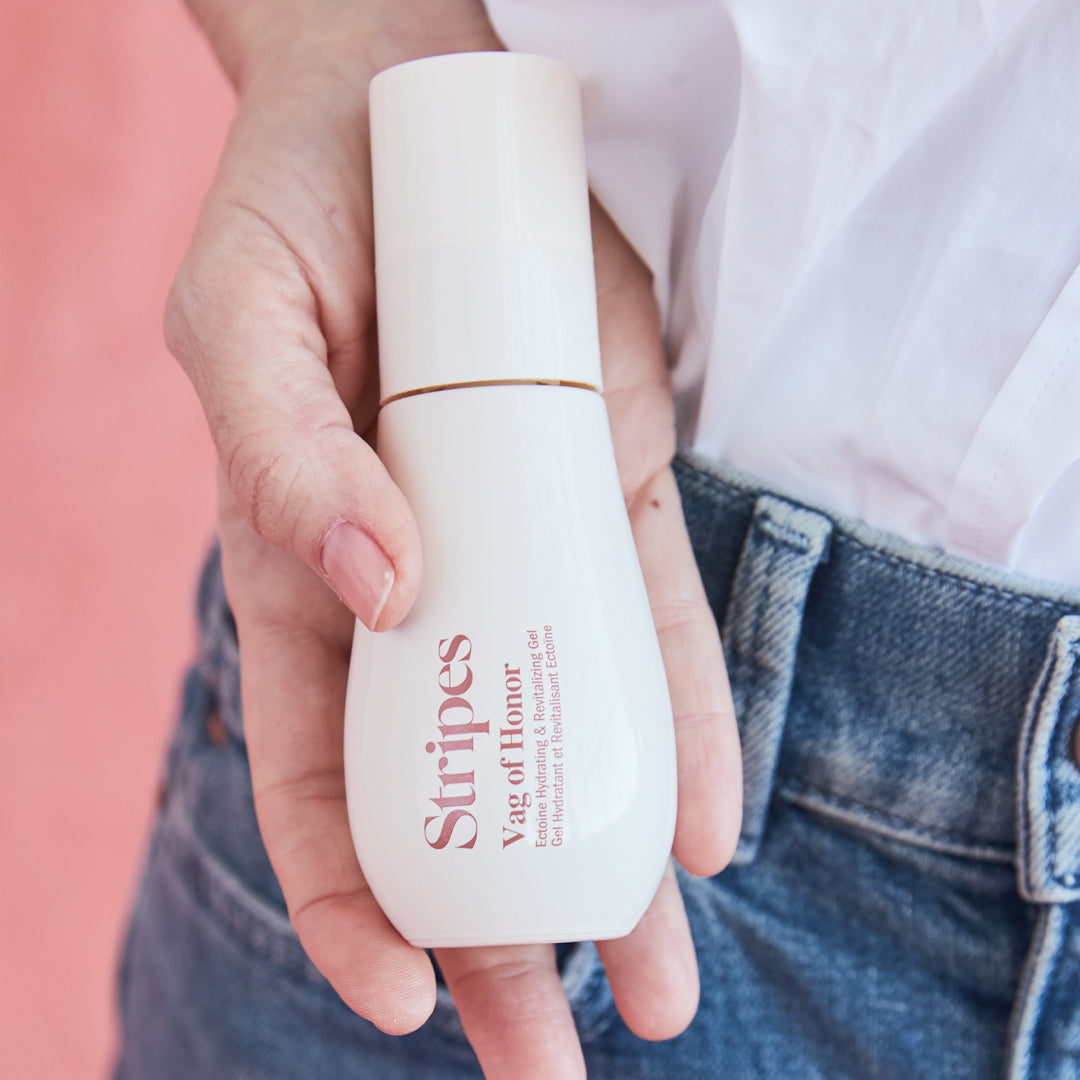Thanks to the slow-and-steady downturn of estrogen production that is its signature, menopause is a time of major physical changes. Hot flashes, headaches, and insomnia are enough to make you feel on edge, but as you’ve probably learned from PMS or pregnancy, hormonal fluctuations can also trigger emotional symptoms of their own. Add in the stress changes of midlife, and you’ve got a recipe for anxiety.
While some “I literally can’t” moments are par for the course during this big life transition, you don’t have to deal with 24/7 anxious vibes. Here’s how to fend off your fears as you approach menopause.
Understand how anxiety works
First thing to know? Anxiety is a normal sign that your hormones are changing, and that you may be going through peri/menopause. So yes, menopause can cause anxiety. This can trigger lots of feelings. If you’ve never had anxiety before, or if yours is debilitating, it’s important to check in with a doctor to rule out medical causes — and consider hormone therapy.
If anxious thoughts about peri/menopause or midlife have you on edge, there’s a lot you can do to self-soothe. While it may not seem like it, your anxiety is actually trying to help you. According to Hollye Jacobs, RN, MS, MSW, a resilience coach, nurse, social worker, and author, your brain is hardwired to detect threats. When you sense danger, your sympathetic nervous system — aka fight, flight, or freeze — kicks into high gear, revving you up to protect yourself from the bear in front of you (or the emotional equivalent).
Helpful techniques for menopause anxiety
When you’re freaking out about the next hot flash or your constant bloating, remind yourself that what you’re feeling is a normal mental and physiological response — and, just as importantly, that you can steer it another direction.
Change the story you tell yourself
Midlife can be hard and scary. But the stories we tell ourselves about what’s happening are often way harder and scarier. Jacobs says taking those big and scary thoughts captive and reminding yourself of reality — say, that your hot flashes will not last forever and your boss probably doesn’t hate you — can trigger the parasympathetic nervous system, or the rest-and-digest response.
Why is self-talk so powerful? Basically, you’re telling your mind and body that you’re safe. “Suffering often comes not from the event itself but from your thoughts about the event,” says Jacobs. “Shifting the story you tell yourself is like hacking the system.”
Ground yourself
Another way to signal safety to your stressed-out body? Get cozy. When you’re on edge, you’re likely focused on the past or the future rather. Grounding yourself with your five senses, Jacobs says, can help you focus on the here and now (which is a whole lot more manageable). So the next time anxiety strikes, grab a cozy blanket and pillow, boil water for a cup of your favorite herbal tea, light a candle, and turn on some calming music. Whatever you can do to comfort your body in a tangible way can help you feel calmer and more at ease.
Breathe deep
When your stress response is turned on, your breathing gets shallower. Taking time for a couple of slow deep breaths can actually turn the sympathetic response off and shift you into a state of relaxation and safety. The best way to breathe your way to calm, Jacobs says, is breathing in to the count of three and out slowly to the count of five. “Breathing longer on the exhale triggers the rest-and-digest response,” she says. “You can use this exercise anytime you feel anxious, until you start feeling better.”
Find something to laugh at
A sense of humor is one of Jacobs’s favorite anxiety coping mechanisms. “A bit of laughter can go a long way in breaking the cycle of anxiety,” she says. When you find yourself on high alert, grab your phone and pull up a funny YouTube video, scroll through TikTok, or turn on a show that always makes you laugh.
Giggling (or belly laughing) can distract you from the thoughts that ail you and shift you toward a more positive mindset. Laughter also decreases the stress hormone cortisol, so it has real physiological benefits, too!
Get curious
You’ve probably heard that mindfulness — tuning into the present moment without judgment — can be a major game changer when it comes to slashing stress. One core element of mindfulness is curiosity, or a desire to learn about something new. According to Jacobs, it’s impossible to be both curious and anxious at the same time. Anxiety is black-and-white — you’re worried something terrible will happen — and curiosity is by nature inquisitive and open.
So when you feel panicky, look around and wonder about what you see. How long did it take the painter to create the art on your wall, and how did they come up with the idea? Who’s driving in the car outside your window, and where are they headed?
“Expand your eyes and look into something as if you’re a scientist,” says Jacobs. “You’ll find yourself shifting from a black-and-white mindset to a more open and inquisitive one, which can move you out of anxiety.”
The takeaway
It can be hard to find your bearings when your mind and body feel out of control. Understanding how anxiety works can give you a sense of agency (and help you reorient yourself when you’re struggling).
Looking to connect with a community of women who know what you're going through? Check out The Hot Spot!











